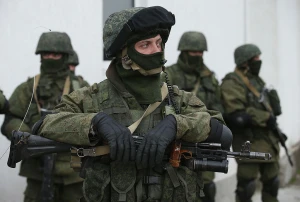
South Africa trying to convince Russia to revive "grain deal"
South African countries are trying to persuade Russia to revive negotiations on an agreement on the safe export of grain from Black Sea ports, which it pulled out of last month
Bloomberg reported the information.
"We are also working hard to persuade the Russian side to address the Black Sea grain deal and interacting with all the relevant parties to see whether we could find a solution to ensure an opening of the Black Sea initiative," South African Foreign Minister Naledi Pandor said during talks with her Japanese counterpart, Yoshimasa Hayashi, in Pretoria.
At the same time, Hayashi said that Japan "deplores" Russia's termination of the grain initiative and hopes to work on its resumption. Both ministers reaffirmed the need for both countries to cooperate on food security in Africa.
Pandor also explained the results of the Russian-African summit. Hayashi is on a tour of African countries that he considers relatively friendly to Russia, with Uganda and Ethiopia on the agenda.
South Africa has taken a non-aligned position on the war in Ukraine. This has drawn criticism from some of its largest trading partners, including the US.
The South African Foreign Minister said that South Africa will continue to seek an end to the war.
"Our country remains non-aligned in this conflict as we regard all wars as wars that we should not take sides on," she said.
Russia's termination of the grain deal
On July 16, the last ship loaded with Ukrainian agricultural products under the initiative left the port of Odesa. On 17 July, Russia announced the termination of the grain deal. In response, Volodymyr Zelenskyy said that it was necessary to continue using the grain corridor even despite Russia's withdrawal from the agreement. And Kuleba began urgent consultations at the UN.
The White House condemned Russia's withdrawal from the grain deal, which played a crucial role in reducing global food prices.
On 18 July, Russian presidential spokesman Dmitry Peskov said there were "certain risks" for parties trying to resume the Black Sea Grain Initiative without Russia's participation.
European Commission President Ursula von der Leyen said that it was critical to restore transport links across the Black Sea to provide food to the world's most vulnerable countries and to preserve the ability to export Ukrainian goods.
On 19 July, it was reported that Ukraine was considering transporting food as part of the grain initiative through the territorial waters of Bulgaria and neighbouring Romania.
At the same time, the Russian Ministry of Defence issued a statement threatening ships heading to Ukraine's Black Sea ports. On the same day, Putin named the conditions for Russia's return to the grain deal and demanded their immediate implementation.
On July 21, Recep Tayyip Erdogan said he wanted to discuss the extension of the grain deal with his Russian counterpart Vladimir Putin and expressed confidence that it will work again.
On July 22, President of Ukraine Volodymyr Zelenskyy addressed NATO Secretary General Jens Stoltenberg with a proposal to immediately convene the NATO-Ukraine Council due to the security crisis in the Black Sea.
Volodymyr Zelenskyy shared details of his conversation with Stoltenberg on Telegram. Zelenskyy and Stoltenberg discussed the implementation of the agreements reached during the NATO Vilnius Summit , as well as further steps towards Ukraine's integration into NATO.
On July 25, Ukraine’s Main Directorate of Intelligence published a report addressed to the Russian leadership. The report listed the technologies used by the Russians to hinder the export of Ukrainian grain, indicating a deliberate disruption of the grain deal.
On July 26, the UK Ministry of Defense reported that Russia had deployed a modern corvette, the Sergei Kotov, in the southern Black Sea to intercept merchant ships at sea. It patrols the transportation route between the Bosporus and Odesa.
Later, Military Media Center reported that Russia was preparing aircraft and ships to block the Black Sea, detect and destroy ships.
Russian leader Vladimir Putin announced that after unilaterally withdrawing from the Black Sea Grain Initiative, Russia was ready to replace Ukrainian grain and start supplying its own grain to African countries free of charge.
On July 30, during the Sunday Angelus prayer at the Vatican, Pope Francis called on the Russian side to revive the Black Sea Grain Agreement, which allowed Ukraine to safely transport grain. Later, President Volodymyr Zelenskyy said he considered the Pope's call to Russia important.
On Sunday, July 30, despite the termination of the grain deal, three civilian cargo ships of foreign origin passed the Russian blockade in the Black Sea and anchored in one of Ukraine's grain ports in the Danube Delta.
- News















































